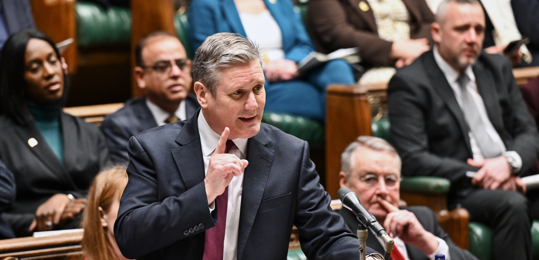Chancellor Rachel Reeves has already commented on there ‘not being a huge amount of money (out) there’. She added her condemnation of the last government in her excoriating statement to the Commons on 29th July blaming them for hiding un-costed and unfunded promises which were now coming home to bite.
At the same time, she announced that her first Budget would take place on 30th October adding that moving forwards, there would be only one fiscal event each year in place of an Autumn Statement and a Spring Budget.
Labour’s promises not to increase headline taxes have included an explicit commitment on National Insurance Contributions (“NICs”). Labour has given a clear message that it believes taxes on working people are too high and it wants to lower them when fiscal conditions permit. This pledge will probably apply to self-employed and employee NICs but there is some debate around Employer’s NIC. However, it is unlikely that Employer’s NIC would be singled out for special attention, particularly where Labour’s key objective is growing the economy and increasing productivity. An upward movement in NICs, especially Employer’s NIC would fly in the face of such a goal.
Although the new government’s first Budget is now only 3 months away, thanks to the Chancellor’s recent statement, we already know some of what will (or won’t) be included and can speculate on others:
-
The Labour government is committed to keeping the personal tax bands frozen at their current thresholds until 2028. This will result in ‘fiscal drag’ which means that as their earnings rise year on year, more people will enter the basic rate tax band and many will move to the higher rate brackets. This ensures that the overall tax take for the Exchequer will increase each year.
-
The watered-down non-dom tax reform introduced by the last government will be accelerated to phase out the advantages of being a UK non-domiciled taxpayer more quickly.
-
Labour has already committed to ending the use of offshore trusts to avoid Inheritance Tax.
-
Although commitments not to raise the key Income Tax, VAT and Corporation Tax rates have been widely broadcast, in view of the dire picture painted of the nation’s current finances, this promise may already be under threat!
-
A tempting move for the new government may be to make CGT payable at the individual’s income tax rate by treating any gains as the top slice of their income.
-
There was a clear manifesto pledge to increase Stamp Duty Land Tax surcharge paid by non-residents by 1%. For UK residents there was also a commitment to drop the first -time buyer Stamp Duty exemption back to £300,000. This is something to look out for in the Budget.
-
A Business Tax Roadmap is expected to be published in support of Labour’s promise to give more stability and certainty on business tax. Expected within 6 months of being elected we can probably expect this to outline Labour’s proposals on Corporation Tax and Capital Allowances for the next 5 years including a timetable for planned reforms.
-
The new Chancellor has previously campaigned to reduce tax relief for pension contributions saying that a flat 33% rate would be a boost for basic rate taxpayers and a cut in the savings subsidy for higher rate earners. Also don’t rule out a possible reduction of the £60,000 annual contribution allowance if this area is to be targeted.
With a new team in place at HM Treasury and new hands on the economic and political reins we are approaching a period of uncertainty. The labour industry has constantly shown its resilience and fortitude in successfully managing change from whichever direction. We are sure that the next 5 years under this new government is likely to present its challenges but none which can’t be overcome by this vibrant and essential industry sector.





